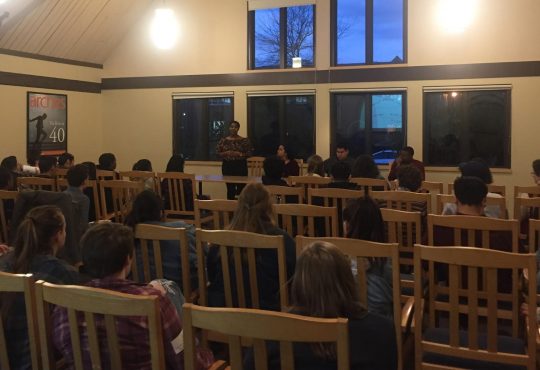Members of the ASUPS Student Senate have officially endorsed the University’s Knowledge, Identity, and Power (KNOW) proposal. Earlier this month, members of the ASUPS Senate voted on whether or not to endorse the proposal which, if passed, would create classes designed to encourage discussion about power and identity struggles within different cultures from around the world. Students would take one or two KNOW classes in their first and second years as another requirement for graduation.
On March 25, faculty members voted on whether or not to pass the proposal and begin designing classes.
If KNOW is passed, the curriculum would need time to develop, and would not be implemented immediately. “If passed, the requirement would not go into effect until Fall 2015, at the earliest,” Chair of the Committee on Diversity professor Amy Ryken said. The curriculum would be gradually developed over the next three to four years, with the expectation that it would be complete by 2018.
Despite the majority support from the ASUPS Senate, there were concerns from both supporters and opposition concerning KNOW. For example, passing the proposal would mean that students would have to add another core class to the already hefty list of graduation requirements. Currently, the University has eight core requirements for graduation. Adding one or two classes under the KNOW requirement would increase the overall core curriculum to nine or 10 classes.
Another concern among the Senate is the pressure of trying to encourage the growth of understanding diversity on campus. Awareness of diversity issues has been a pressing concern within the campus population for a number of years.
Some members of the senate are skeptical as to whether the requirement would be the best educational framework to help introduce the issues. Still, the need to increase the understanding of diversity on campus has been the driving force behind the Senate’s endorsement.
“Given the issues we’ve seen from collected data by the university’s Campus Climate Survey, many individuals from many cultural and social groups felt as though they didn’t have a voice on campus,” an ASUPS representative, who wished to remain anonymous, said.
KNOW has gained popularity from different groups within the university, receiving endorsement from not only the Student Senate, but also the Faculty Senate and, earlier this year, the Committee on Diversity. Even members of the Greek community have given the proposal the thumbs-up, receiving a letter of endorsement on behalf of Sigma Alpha Epsilon.
According to the proposal rubric, KNOW would not become effective until the fall of 2015, with nine classes available; although, that figure is expected to increase to 34 by 2018 in order to accommodate a one-class overlay.
The support from both the student and faculty bodies shows a passion to actualize this proposal and get students thinking deeply and critically about diversity, identity and power.
Though the current student body would not have the benefit of sampling these classes, future first and second year students can look forward to stepping outside of their educational comfort zones to take a new approach to understanding.
With the endorsement from the Student Senate, the KNOW proposal appears to be on the right track towards becoming a reality. Faculty will have the final say, but if the University wishes to further students’ understanding and awareness of a subject which has been accused of not receiving enough merit, the KNOW proposal is a promising stepping stone.






